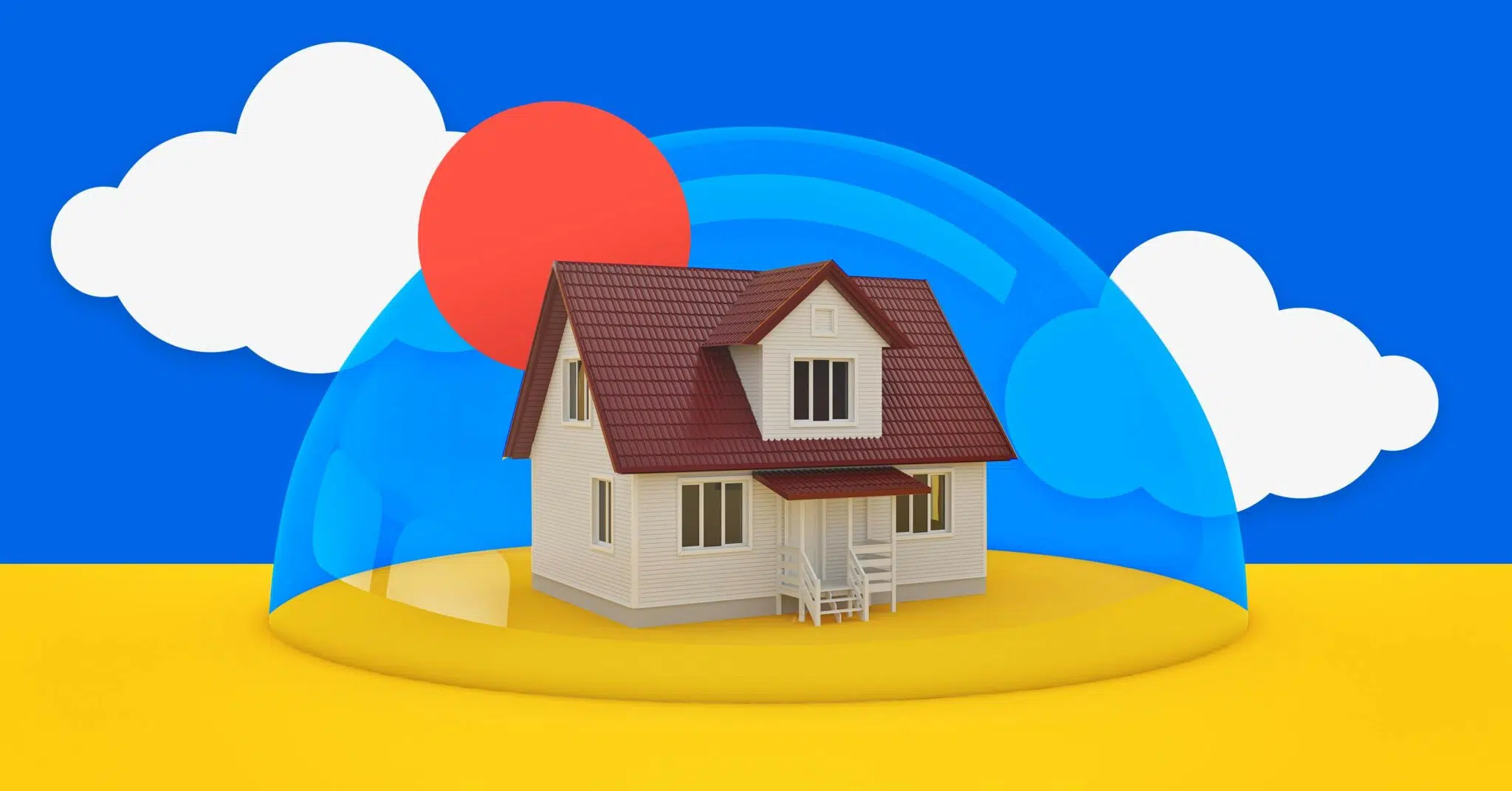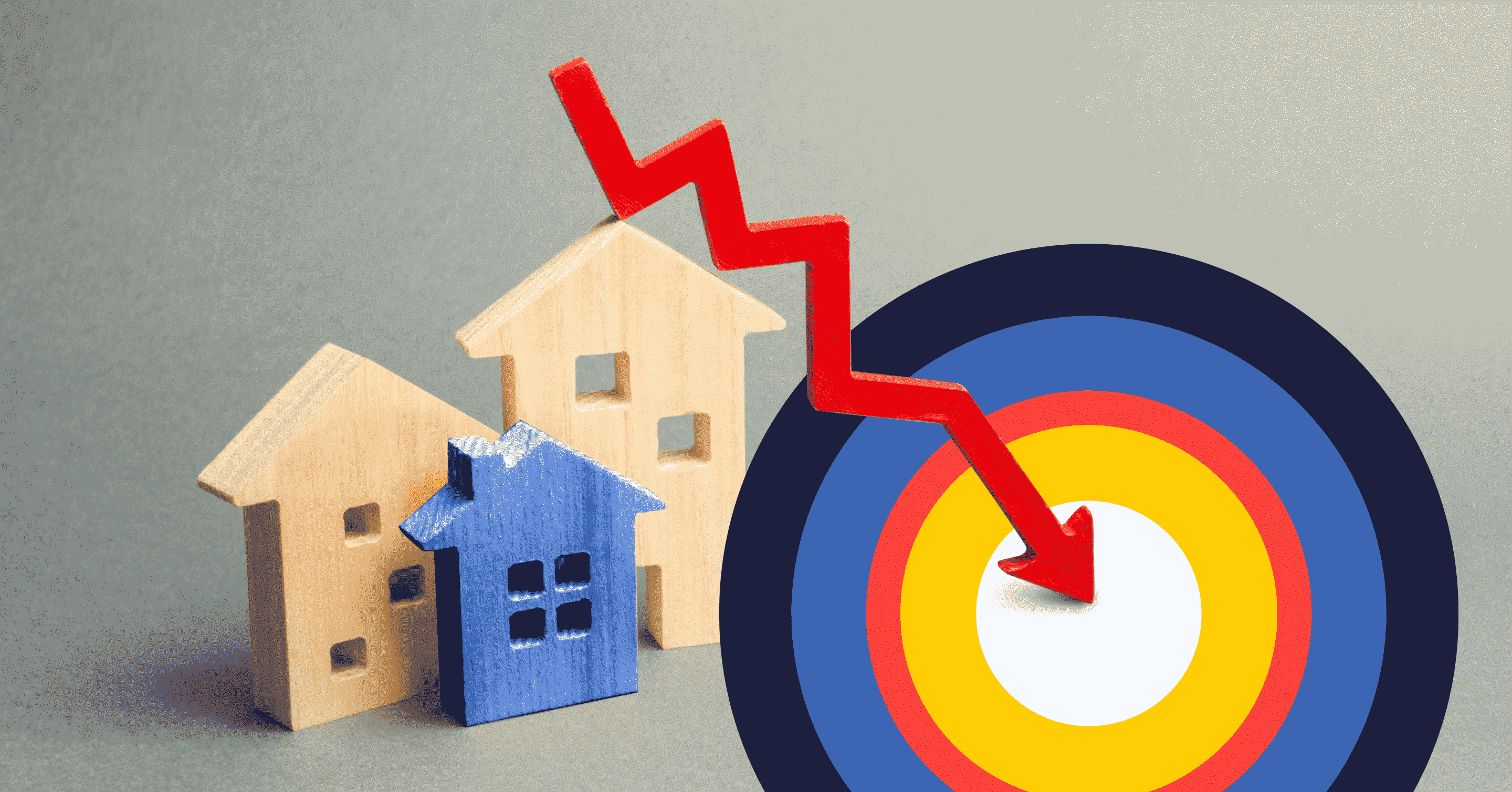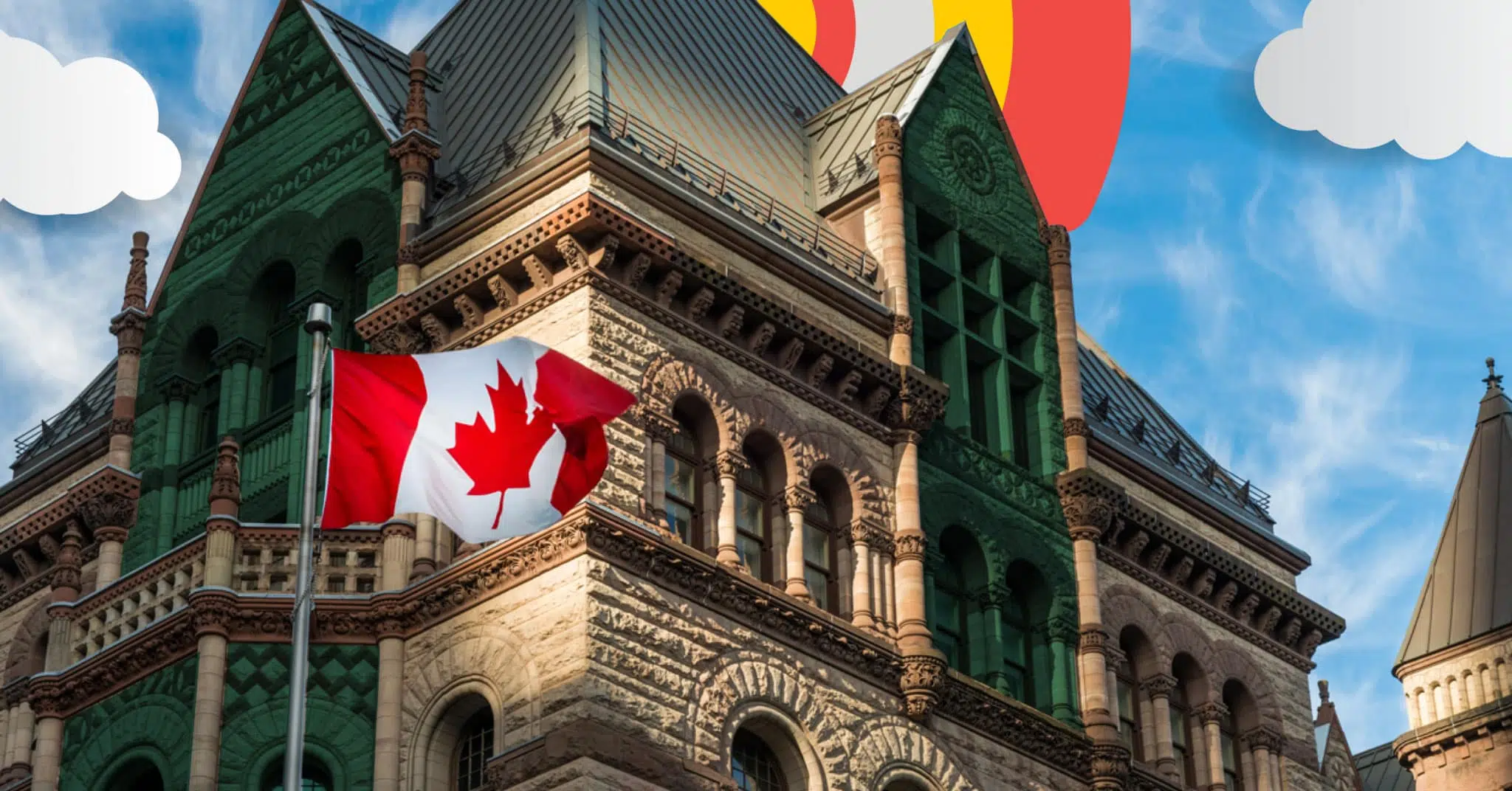Real Estate #Home Buying #Mortgage Basics
Real Estate #Home Buying #Mortgage Basics
What Is a Housing Bubble, and Are We in One?

Table of contents
Home prices in Canada have climbed significantly in the past few years, leaving many speculating that we’re experiencing a housing bubble that will burst anytime. Housing bubbles typically occur when home prices increase significantly and become unsustainable over the long term. If this sounds familiar, you may live in a market like Toronto, where the UBS Global Real Estate Bubble Index ranks 5th and an elevated risk on their bubble score list for 2024 or Vancouver, which has fallen to 10th on the list and a moderate risk.
The real estate market is constantly shifting, but sometimes, home prices soar to unsustainable levels before suddenly crashing. These bubbles can create a frenzy of buying, driven by speculation, easy credit, and high demand, only to burst when prices become unaffordable and demand dries up. Amid economic uncertainty, it’s crucial to understand how housing bubbles form, what causes them to burst, and whether today’s market shows the warning signs of one.
Key Takeaways
- Housing bubbles occur when prices rise to unsustainable levels.
- When and if a housing bubble bursts, it can impact Canada’s entire economy.
- While many Canadians face affordability challenges, our housing market is experiencing a market correction rather than a bubble burst.
What Is a Housing Bubble?
A housing bubble occurs when home prices rise rapidly to unsustainable levels due to high demand, speculation, and limited supply, often fueled by easy access to credit and low interest rates. This price inflation eventually reaches a tipping point where affordability declines significantly, demand weakens, and prices fall sharply.
When a housing bubble bursts, homeowners may find themselves with a property worth less than their mortgage, which can lead to financial distress. This can severely impact the broader economy and cause a downturn. Housing bubbles have historically been linked to recessions, such as the 2008 financial crisis, which hit the US housing market hard.
What Causes a Housing Bubble?
Housing bubbles are typically caused by economic, financial, and behavioural factors that inflate home values beyond what is affordable. Limited housing supply can contribute to housing bubbles, especially when high demand outpaces inventory and new construction levels. Low interest rates and easier access to credit can encourage borrowing and allow buyers to purchase homes at higher prices.
Speculation in the market can further accelerate price growth as investors buy properties expecting to sell at a profit. Additionally, government policies like tax incentives and lax lending regulations can fuel housing bubbles by making it easier for buyers to enter the market.
What Happens When a Housing Bubble Bursts?
When a housing bubble bursts, buyers disappear, demand sharply declines, and prices plummet. Homeowners who have already purchased at inflated prices may find that they now have negative equity, meaning they owe more on their mortgage than their property is worth. As unemployment increases due to market contraction, this can lead to foreclosures, financial strain, and reduced consumer spending, creating a ripple effect across the economy.
Banks and lenders may suffer losses and tighten credit conditions, making it harder for new borrowers to enter the market. In severe cases, a housing bubble burst can trigger a widespread economic downturn. This was seen in the US during the Great Financial Crisis (GFC), leading to many job losses, reduced investments, and prolonged economic instability.
Red hot rates impacting your housing market experience?
With nesto, you can get a low rate with a 150-day hold.
Canadian Housing Turbulence Throughout the Decades
Canada’s housing market has seen its fair share of ups and downs throughout the decades, shaped by economic cycles, policy changes, and shifting demographics. From the overheated real estate boom of the late 1980s to the crash that followed, rapid price appreciation of the early 2000s and the market shocks of the 2008 financial crisis, housing in Canada has experienced periods of turbulence. Historically, low interest rates most recently fueled a pandemic-era buying spree, followed by soaring inflation and aggressive rate hikes.
1989-1990
Canada experienced one of its worst housing crashes, particularly in cities like Toronto, where home prices surged to unsustainable levels throughout the late 1980s. Speculative buying, easy credit, and economic optimism overheated the market.
When the Bank of Canada tried to curb inflation that was more than 6%, growth in GDP plunged, and unemployment rose.
Interest rates spiked to almost 14%, causing affordability to collapse and demand to dry up almost overnight, causing property prices to plummet. Consumer confidence fell, fewer people bought homes, and spending declined, further depressing the economy. An elevated national deficit, a weakening Canadian dollar, and a recession in the US further contributed to Canada’s economic turmoil, and home prices suffered double-digit declines.
Many homeowners found themselves unable to afford mortgage payments or sell their homes without incurring massive losses. The downturn was severe, and prices took nearly a decade to recover. This period marks one of the worst recessions since the Great Depression and one of the most significant housing bubbles to burst in Canadian history.
2007-2009
During the global financial crisis, Canada’s housing market faced some turbulence but avoided the catastrophic collapse that occurred in the US housing market. Thanks to stricter lending regulations, Canada didn’t experience the same level of mortgage fallout. However, home prices softened as economic uncertainty and job losses reduced buyer confidence.
In response, the Bank of Canada cut interest rates, making borrowing cheaper and preventing a deeper downturn. By 2009, the market had already started to recover, and in many regions, home prices were starting to climb again, setting the stage for future affordability challenges.
2017-2019
Canada’s housing market caught the attention of policymakers as home prices and sales hit record levels. Concerned about overheating and speculative investments, measures like foreign buyer taxes, stricter borrowing rules, and the stress test were introduced to curb excessive borrowing. These interventions slowed price growth, and some markets saw temporary declines. However, demand remained strong, and low interest rates continued to support the market and high home values.
Present
Today, Canada’s housing market is experiencing uncertainty. Higher interest rates, affordability challenges, and shifting buyer behaviours impact the market. After a pandemic-fueled surge in home prices and aggressive rate hikes by the BoC to cool inflation, many regions are experiencing price corrections.
However, persistent housing shortages, population growth, and strong rental demand continue to prop up real estate prices in key markets. Some fear the potential for another housing bubble burst, while others welcome it. Others argue that current conditions reflect a market adjusting to higher borrowing costs rather than speculative excess. With economic uncertainty on the horizon, the coming months will be crucial in determining whether prices stabilize, decline, or surge again.
Are We in a Housing Bubble?
The question of whether Canada is in a housing bubble is a topic of heated debate. The market shows characteristics of a housing bubble and signs of a natural adjustment. Home prices surged to record highs during the pandemic, driven by record-low interest rates. However, aggressive interest rate hikes since 2022 have cooled demand, causing price declines in some regions while others remain resilient due to supply shortages and population growth.
Unlike past bubbles, today’s market is less driven by speculation and more by imbalances between supply and demand. While affordability remains a significant concern in most markets, the current landscape suggests Canada is experiencing a market correction as it adjusts to a new interest rate environment rather than an imminent housing bubble burst.
Frequently Asked Questions
Is Canada’s housing market in a bubble right now?
Many Canadians wonder whether the rapid rise in home prices indicates a housing bubble about to burst. While some markets, like Toronto and Vancouver, show elevated risks, experts suggest the current trends reflect a market correction rather than a classic speculative bubble.
What causes a housing bubble, and how does it affect homeowners?
A housing bubble forms when prices surge due to speculation, high demand, and easy credit access. When it bursts, prices plummet, leading to financial distress for homeowners.
Will Canada’s housing market crash in 2025?
With high interest rates and affordability challenges, many Canadians are concerned about a potential market crash. However, experts suggest that supply shortages and strong demand may prevent a sudden collapse, making price corrections more likely than a full-blown crash in 2025.
Final Thoughts
Housing bubbles have historically shaped Canada’s real estate market with periods of rapid price growth followed by corrections. While past bubbles were fueled by speculation and unsustainable lending, today’s market looks quite different and is influenced more by supply shortages.
Although the market shows some warning signs that a housing bubble exists, like high home prices and affordability concerns, the market is also driven by strong demand and a limited housing supply, which could prevent any significant or sudden crash. Instead of a bursting bubble, the market seems to be undergoing a correction, adjusting to current conditions. Many rush to buy when home prices are surging because they fear missing out, but the smartest buyers plan ahead. Chat with a nesto mortgage expert today and get ahead of the market!
Ready to get started?
In just a few clicks, you can see our current rates. Then apply for your mortgage online in minutes!
in this series Inflation & The Housing Market
- A Guide to How Inflation Influences Interest Rates next read
- How Real Estate Can Hedge Against Inflation next read
- Why Inflation Numbers Don’t Reflect the Housing Market next read
- How to Prep for a Recession next read
- What Is a Housing Bubble, and Are We in One? currently reading
- Will the Housing Market Crash in Canada? next read















